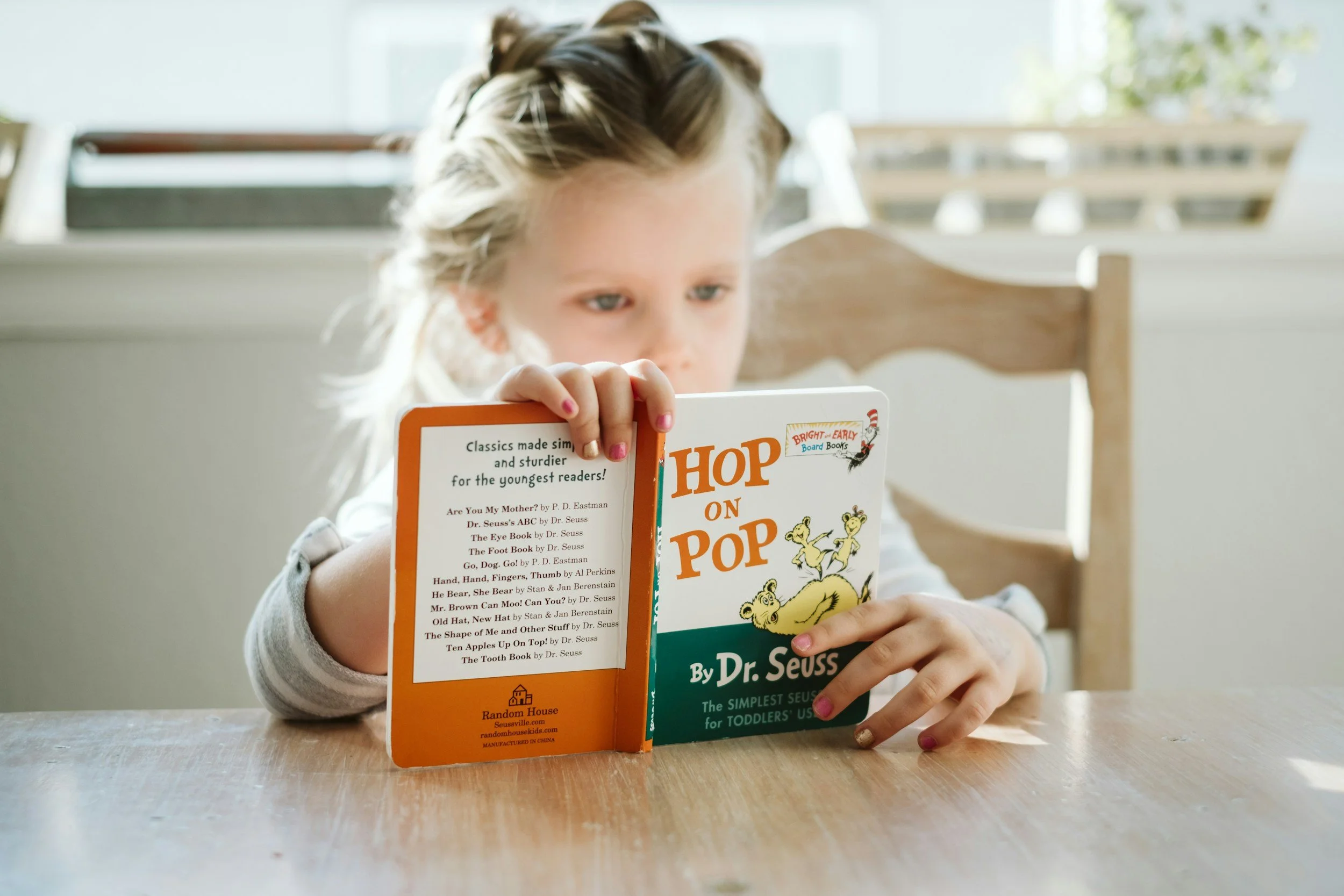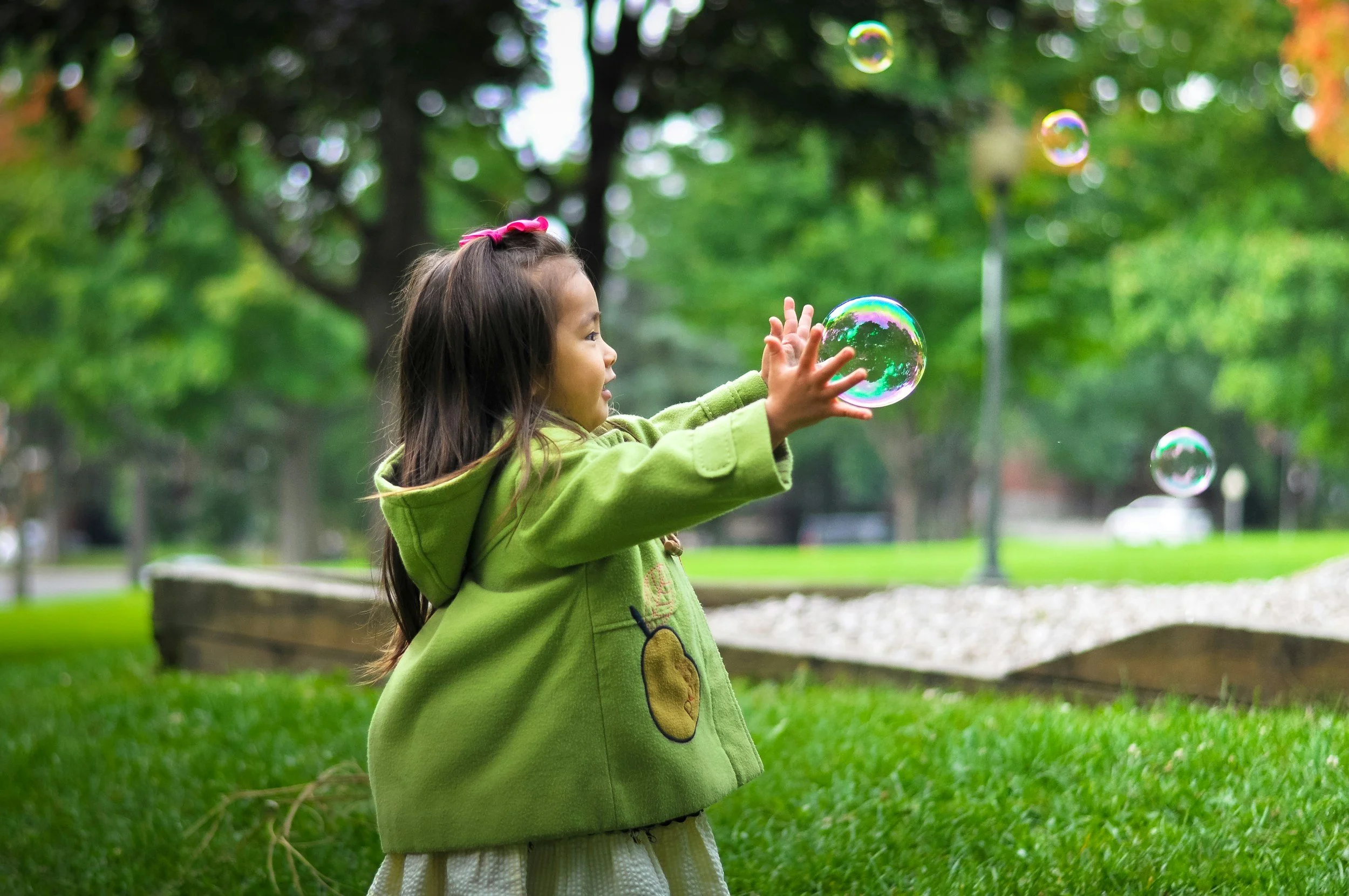Speech Milestones
Ages birth to 3 months:
Alert/startles to sound/people talking
Quiets or smiles when you talk
Makes sound back and forth with you
Coos
Recognizes loved ones and common objects
Ages 4 to 6 months:
Giggles and laughs
Responds to facial expressions
Looks at objects of interest
Reacts to toys that make sounds
Vocalizes during play and mouths objects
Blows “raspberries”
Ages 7 to 9 months:
Looks at you when you call their name
Stops for a moment when you say, “No”
Babbles long strings of sounds
Looks for loved ones when upset
Raises arms to be picked up
Recognizes the names of some people/objects
Pushes away unwanted objects
Ages 10 to 12 months:
Reaches for objects
Points, waves, and shows or gives objects
Imitates and initiates gestures (blowing kisses, playing peek-a-boo)
Tries to copy sounds you make
Enjoys dancing
Responds to simple words and phrases
Says one to two words
Ages 1-2 years old:
Points to body parts when asked
Follows simple 1- and 2-step directions
Understands simple questions
Puts two words together
Points to pictures in a book when named
Uses 1- and 2-word questions
Uses many different consonant sounds
Shakes head for “no” and nods for “yes”
Uses gestures such as clapping hands, gives high-fives, or makes faces
Uses and understands at least 50 words
Uses words to ask for help
Ages 2 to 3 years old:
Uses word combinations often but may occasionally repeat some words or phrases
Tries to get your attention by saying, “Look at me”
Says their name when asked
Uses some plural words like birds or toys
Uses –ing verbs like eating or running. Adds –ed to the end of words to talk about past actions, like looked or played
Gives reasons for things and events, like saying that they need a coat when it’s cold outside
Asks why and how
Correctly produces p, b, m, h, w, d, and n in words
Correctly produces most vowels in words
Understands simple opposites
Speech is becoming clearer but may not be understandable to unfamiliar listeners or to people who do not know your child.
Ages 3 to 4 years old:
Compares things, with words like bigger or shorter
Tells you a story from a book or a video
Understands and uses more location words, like inside, on, and under
Uses words like a or the when talking, like a book or the dog
Asks when and how questions
Understand basic shapes and colors
Pretends to read alone or with others
Recognizes signs and logos like STOP
Pretends to write or spell and can write some letters
Correctly produces t, k, g, f, y, and –ing in words
Says all the syllables in a word
Says the sounds at the beginning, middle, and end of words
By age 4 years, your child talks smoothly. Does not repeat sounds, words, or phrases most of the time
By age 4 years, your child speaks so that people can understand most of what they say. Child may make mistakes on sounds that are later to develop—like l, j, r, sh, ch, s, v, z, and th
By age 4 years, your child says all sounds in a consonant cluster containing two or more consonants in a row—like the tw in tweet or the –nd in sand. May not produce all sounds correctly—for example, spway for “spray”
Ages 4 to 5 years old:
Produces grammatically correct sentences. Sentences are longer and more complex
Includes (1) main characters, settings, and words like and to connect information and (2) ideas to tell stories
Uses at least one irregular plural form, like feet or men
Understands and uses location words, like behind, beside, and between
Uses more words for time—like yesterday and tomorrow—correctly
Follows simple directions and rules to play games
Locates the front of a book and its title
Recognizes and names 10 or more letters and can usually write their own name
Imitates reading and writing from left to right
Names letters and numbers
Blends word parts, like cup + cake = cupcake. Identifies some rhyming words, like cat and hat
Produces most consonants correctly, and speech is understandable in conversation
May make intermittent errors on l, s, r, v, z, ch, sh, and/or th sounds





